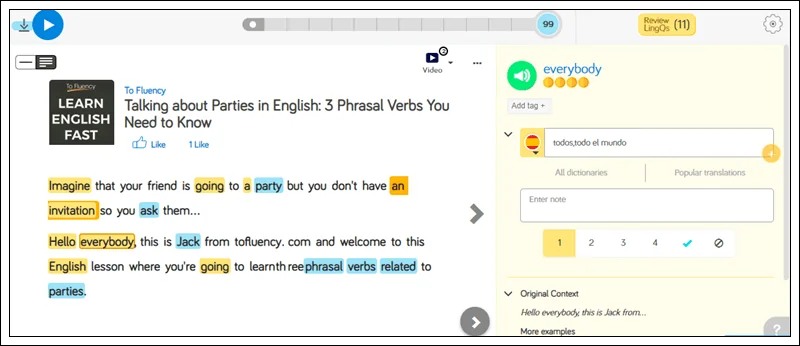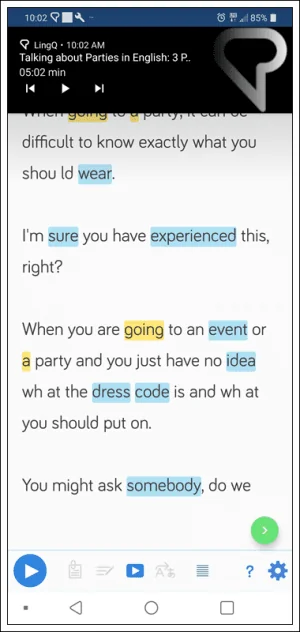Common English Mistakes: ~ed Versus ~ing Words
The proof is in the pudding, the saying goes. However, when it comes to some common English mistakes surrounding adjectives, I’d say the truth is in the suffix. Namely, there are a ton of English adjectives out there that look or sound alike but are completely different, especially when we’re talking about the -ing and -ed suffixes.
Here are just a few examples of that:
bored vs. boring
interested vs. interesting
surprised vs. surprising
Do any of these sound familiar? If so, it’s because English learners, in general, commonly make mistakes with adjectives that end in either -ing and -ed.
In my experience (trust me, I’ve asked my students about this), English learners often think that adjectives ending in -ing are used exclusively with things while -ed adjectives are used with people. In doing so, they confuse these suffixes with one another.
Quite frankly, they aren’t too far from the truth here…
The Breakdown: -ing vs. -ed
If we take a look at the English rule book, we’ll find that adjectives that end with -ed are used to describe feelings (or how a person feels) and emotions. Consequently, because only people (and some animals) can actually have feelings, -ed adjectives cannot be used to describe an object or situation, for example:
The movie was bored. (incorrect)
The movie was boring. (correct)
On the other hand, adjectives that end with -ing are used to describe characteristics of people, things or situations. Let’s have a look at how these two suffixes compare now:
Jack is bored. (Jack is feeling bored)
Jack is boring. (Jack is a boring person. Jack causes others to be bored.)
As we see in the example above, it can also be said that -ing adjectives are used to describe the cause of or reason for an emotion, as well, for example:
Sophia is so annoying. (Sophia is an annoying person. Sophia causes others to feel annoyed.)
So, there are the rules to remember when it comes to -ing and -ed adjectives:
– Adjectives that end with -ed describe people’s feelings/emotions.
– Adjectives that end with -ing describe characteristics of people, things or situations.
– Adjectives that end with -ing describe the cause or reason behind people’s feelings/emotions.
On that note, let’s take a walk through some of the most common English mistakes with -ing and -ed adjectives and eliminate any confusion between them once and for all.
My brother is bored. (My brother feels bored.)
My brother is boring. (My brother makes other people feel bored.)
Chloe is confused. (Chloe doesn’t understand something.)
Chloe is confusing. (Chloe causes others to not understand something.)
Stephen A. Smith always sounds interested. (Stephen A. Smith likes to listen to others.)
Stephen A. Smith always sounds interesting. (Stephen A. Smith is amusing to listen to.)
I felt disturbed. (Something really bothered me.)
I felt disturbing. (I thought I bothered someone else.)
This team looks disappointed. (This team’s players are sad about losing the game.)
This team is disappointing. (This team is playing badly.)
To avoid sounding redundant, there is also a different way of pitting these two adjective endings against one another, which really highlights their differences. Here are 10 more examples:
I was surprised by how surprising the new Avengers movie was.
The teacher was shocked by our shocking test results.
Kim was bored by the boring lesson.
My parents were frightened by the frightening roller-coaster ride.
The crowd was horrified by the horrific injury they saw on the court.
I find public toilets to be disgusting. I am just disgusted by them!
That documentary last night was so interesting. I’m very interested to see the sequel!
Last night’s marathon was extremely tiring. Oh my God, I’m so tired right now!
Tony Robbins is such an inspiring individual. I always get inspired after listening to him.
The Golden State Warriors were just amazing last night! I am amazed by Steph Curry!
Note: These sentences can sound a bit odd when you read them aloud but their purpose here is to really just highlight the differences between -ing and -ed adjectives.
Verbs vs. Adjectives
One more thing… Every single adjective that we mentioned in this article can also be used as a verb, which makes matters all the more interesting. In fact, this might just be the reason why some learners find it hard to recognize which suffix, -ing or -ed, to use in any given situation.
This is no longer the case of different meanings of two words but their function within a sentence, as is shown in the following examples:
The professor shocked us with the test results. (verb)
Oh, that boy just keeps shocking us! (verb)
The students were shocked by the test results. (adjective)
The test results were shocking. (adjective)
Of course, whether a word is an adjective or verb really depends on the context. As such, it is on you to recognize that function and use the correct adjective.
Last but not least
So, after plenty of examples and explanations, let’s wrap this up nicely!
You might be at the movies and feel bored (emotion). Afterward, you may advise your friends to not watch that specific movie because it is boring (cause of emotion). But, you cannot ever say that the movie was bored, can you now?
In a nutshell, you only need to remember the following three rules today (and I don’t mind repeating them):
– Adjectives that end with -ed describe people’s feelings/emotions.
– Adjectives that end with -ing describe characteristics of people, things or situations.
– Adjectives that end with -ing describe the cause or reason behind people’s feelings/emotions.
And that would be it!
Hopefully, today’s explanations have been useful in helping you discern when and how to use -ing and -ed adjectives correctly to avoid some common English mistakes in your daily lives.
Until next time, happy English learning!
Want to learn English using content you love
The best way to remember how adjectives and ~ed or ~ing words are used isn’t by memorizing the rules…it’s by reading and listening to native material.
Over and over and over again.
Luckily for you, finding the best material to help you study has gotten easier thanks to LingQ, a language app that lets you use content you love so you can learn English.
For example, let’s say you’ve come across a YouTuber who makes great videos but maybe you have a hard time following along. Well, you can import those videos into LingQ and turn them into lessons allowing you easily read the dialogue, listen to the audio, look up each word, and save them to your library…like so:

Now you have a fully interactive lesson to help you learn English faster. LingQ also has a mobile app for both iOS and Android that allows you to study anytime, anywhere 🙂

Not only that, but once you’ve signed up for LingQ, you will have access to 100s of English lessons right away. These lessons have been professionally recorded and translated by native English speakers and are prefect for beginners. Check them out today and make a breakthrough.
Want to jumpstart your learning? Check out polyglot and LingQ cofounder Steve Kaufmann’s blog post on the best way to learn English fast.
We’re often asked: is English hard to learn? Well, not if you enjoy the learning process! That’s why there’s LingQ, which allows you to learn English from content you love! This means you can catch up on your favourite English Netflix series or podcasts while furthering your language skills. Check out LingQ today to get started!
***
Jasmin Alić is an award-winning EFL/ESL teacher and writing aficionado from Bosnia and Herzegovina with years of experience in multicultural learning environments.



